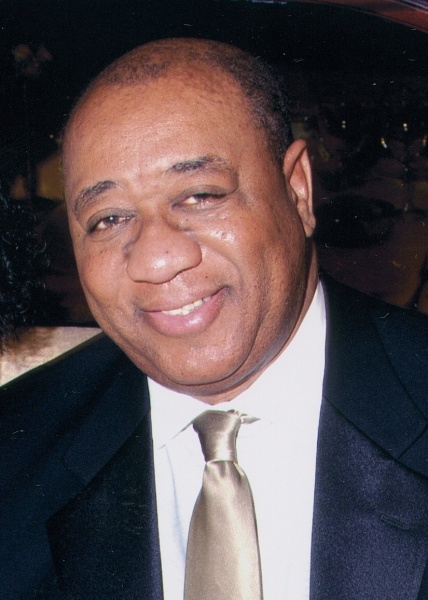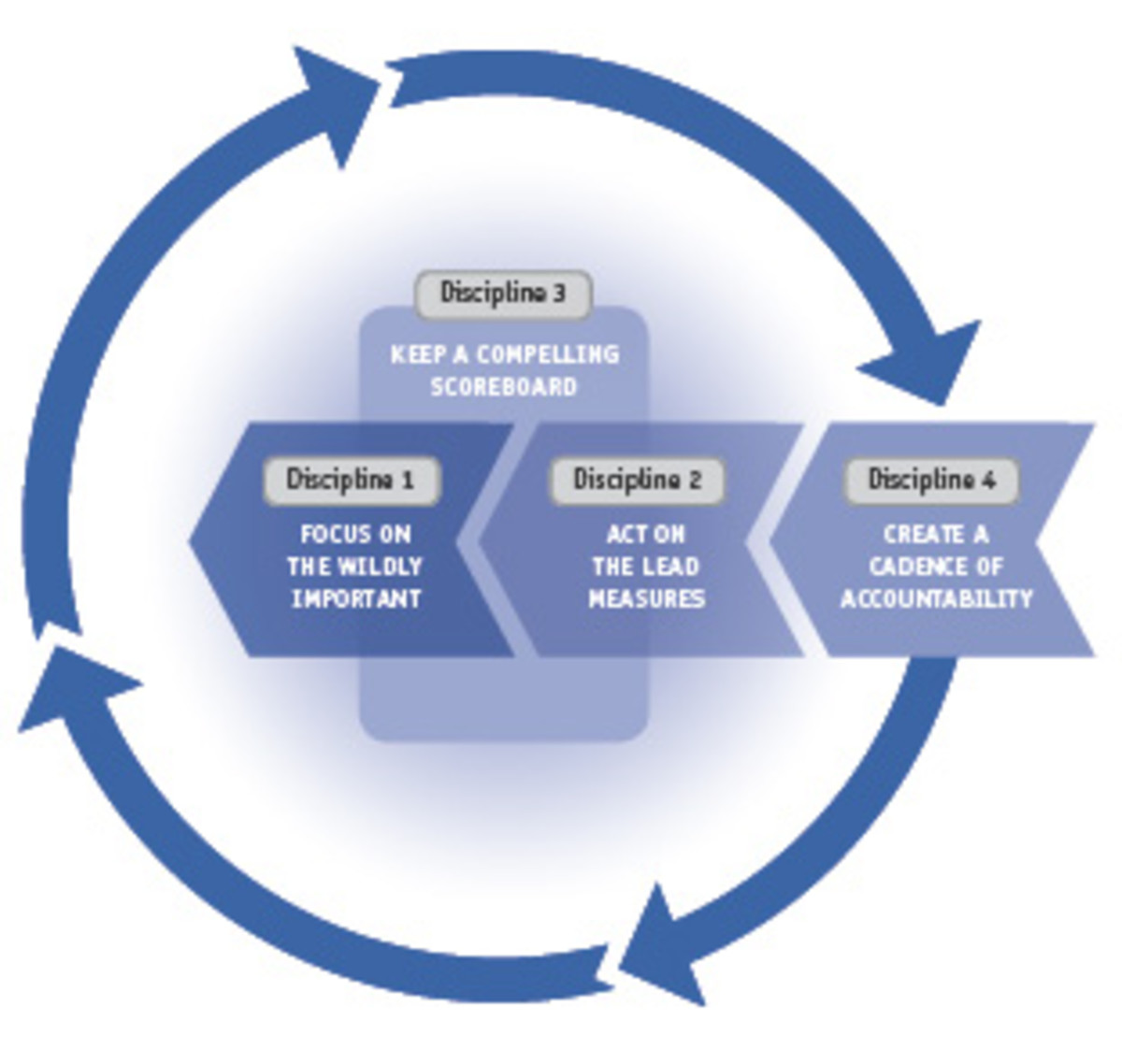Interview with Robert Patterson, Sr. -- Author, Minister, Counselor,
Robert Patterson, Sr.

The Five Steps to C.A.L.M.
Robert Patterson, Sr. is an ex-marine, a retired minister, and now an author. He is also actively engaged in career and life management. His recent book, The Next Five Steps to C.A.L.M., is a workbook designed to help people either get a job or advance in their present situation. He believes that a person should respect their responsiblity to feed the spouse and children, pay for the house, get a job and do whatever needed to accomplish the goal of providing for the family.
Opening comments: In the Marine Corp, we used a term, "malingering" -- that's someone who doesn't want to do what they need to do to accomplish the mission. When I talk to people today, most of the people I talk to, they have the idea that they can take a resume and it will be their ticket to whatever they want to do. Someone in HR won't take the time to read the entire resume. They are looking for someone to solve a problem that they have. That's why they ran an ad. So the resume should tell HR that you recognize their problem and that you can solve it. Your resume has about 30 seconds (top third) for the interviewer to discern what it is you can do for me. How you can solve our problem.
You served in the U.S. Marines during one of the most turbulent times in our nation's history. What experience from those years helped you most with your current efforts to help people find jobs?
I've understood that any time you have an objective that you wanted to accomplish, you've got to first figure out what your plan of attack is going to be to accomplish that objective. Once you've got a plan, then you initiate that plan. Plan your work and work your plan.
How did you get into the news/media business? Once I came out of the Marine Corps, I went to a community college and studied drama. I've done "Othello", played Lenny in "Of Mice and Men". I was also in "A View from the Bridge". From drama went into radio and television. I did a program called "Behind the Truth" at a cable station in Oceanside and I did the news. That just kinda gravitated to when I started working for the department of defense. They wanted someone to teach a class on motivation.
When were you called into the ministry? What denomination? I was raised by a Methodist preacher in an orphanage. From age 5 to 17. We went to church every Sunday and got involved in the "YPD", young people's department. So it was a very spiritual, Chrisitian background as a Methodist. You know, the fruit doesn't fall far from the tree. Then, you grow up, you rebel, you run out, see the world. I joined the Marine Corp and I was doing everything that I wanted to do. So, when I was spared to come back, because a lot of my friends didn't come back, [I was messed up a ways] but I still came back--I went to Viet Nam with a helicopter squadron out of El Toro. My first tour, we stayed over there thirteen months. My second tour, I got kinda messed up. I got med-evaced. They brought us into Andrews Air Force Base and from there I was given a medical discharge because I was not capable or able to go back and complete my military service. Since I was raised in the church, by a minister, I can't point to a particular moment and say that was when I got the call. It was always in my mind that I would preach.
Are you active in the ministry today?
At this point, I am retired. I've been retired for four years. But while I was pastoring, I was the assistant pastor at the Walker Chapel African Methodist Episcopal Church in Oceanside, CA.
You must have had a good experience at the University of Phoenix?I actually never went to the U of Phoenix. I went to Westminister which is in Esposito. What you saw was the foreword of my book was from my very close friend. His name is Reggie Owens. He was a sargeant major in the marine corp, retired now. That's where you saw that.
How did you come up with the acronym, C.A.L.M.? I was thinking about the frustration of how one initiates time to find a job and all the things one goes through; trying to figure out what it is that you want to do, as opposed to what you want to be, how to formulate your skill sets into a constructive manner to form a resume. Thought about the frustration and the pressure of that and so I thought about the word, "calm". When I thought about the acronym, "C.A.L.M." I said, "OK, how can I put this thing into the shortest amount of steps, and have someone be calm, once this whole thing is done." So that's where I came up with "career and life management". If you don't have some kind of structure or some kind of order to your life management as far as how you're going to initiate, carry out, and accomplish something, it's going to be a big mess.

When people come to you today and their "who do you know" lists are very short, say less than 100 names, how do you advise them to expand their network?
I have them break out one of these legal pads and make a list of everyone they know from church. Then everyone they know from the community. I ask them a very simple question. "What do all those people do and how they may be helpful to you in obtaining information about what you want to do and where you want to go in life?"
How do they build "centers of influence"?
It only takes a handful of people. But of that handful of people, who do those people know that can possibly be beneficial to help you move from block A to block B? And then who do those people that they know, know? And so even though you started out with only ten people all together. But who do those ten people know? And then who do those ten people know? Because it goes into, will you refer me to them? And will they, knowing you, refer me to someone else? Before you know it, you've spun that ten off into twenty; and that twenty into thirty. So that's why I re-enforce the fact that networking is very important.
There are a lot of people out there who are sitting around drawing un-employment checks and/or living off their families and NOT working. Many claim they are waiting on the "ideal" or "right" job to come along. How do you help them? I hear that a lot. I have a thing where I talk about decision-making. In order for you to be serious about making decisions and how to lay out your strategy on that yellow legal pad, you've got to ask yourself, "What do I want to do?" But most people will put, "What do I want to be?" This is the most difficult part of career planning and upward mobility as well as the most often neglected. It's the necessary first step in any effective upward mobility campaign because if you don't have any idea of what you want to do, how then, do you start identifying your major skills, assets, abilities, talents, traits, etc. If you have no concept of what you want to do, how do you generate those major skill sets to help you identify what companies and corporations do, what you want to do?
Several people who do the hiring where they work have said they prefer to hire people who show the initiative to take any job just to keep a check coming in until the right one comes along..... I would agree with that. I look at it like this: the average person [and you can look back at your own experience and understand whether I'm coming from the right direction or not] that goes into a job, today, I would only give them basically five years before they're moving on to something different. People don't go into jobs today as they did ten or twenty years ago with the outlook of staying in that job for twenty years to get that gold watch. It just doesn't work that way anymore. This is a whole different mindset. You don't see that kind of discipline in the young people today. Their thing is, "Give it to me now, yesterday was too late." Discipline today is a whole different ball game. I don't know where it is. I don't think most young people today understand the concept of that word, "discipline".
Do you counsel, advise, coach clients personally?
Yes I do. I have a website: FiveToFive I have a five week extensive program where I take people and go through this whole situation with them for five weeks. My clients are from all over the world, from all walks of life with various careers and backgrounds. Some have PhD's, some have masters, some have bachelors, some have no degrees. We communicate over the internet. We go through the first couple of chapters of the book putting together their personal appraisal and their career catalog. To me, unless you research your past experience to get at your hidden skills, rendering your own value judgement on your skills in terms of the pleasure you take in using them and the amount of expertise you have. How do you know what skills you have that you want to barter to employers, if you haven't sat down and figured them out?
Do people have the self-discipline to do that?
That's the biggest problem that I see. Taking the time to go through the five steps in my book. That's why I wrote it in a workbook concept. I've been doing this kind of stuff for over twenty years. I've honed everything I've done and what you see is broken down into finite points. What you see in the book is what I've used working with over 100,000 people. I have proven that if you discipline yourself and take the time to go through these five steps, then you will come out with at least five different resumes. A human resources person is not going to dig through five or six different skill sets on one resume. You've got to know what that company's needs are so you can sell yourself. You have to match your qualifications to the need of the employer. Most big companies get so many resumes, they use a scanning service called "resumix" to search for the candidates whose qualifications are closest to their needs.
Do you see a willingness by businesses to hire candidates that are obviously over-qualified for the opening they have?"What can you do for me?"(the employer) Sell yourself. -- Supposed I'm an employer and I have a need. Whether you come through human resources or the scanning service, your resume is only going to get you an interview. That's the purpose of the resume, to get you an interview, not to get you a job. If I'm interviewing you, what I want to find out in the interview is, "What can you do for me?" Now, if you've done your homework (like I advise in the book--in career explorations) and researched the company, then when you go into that interview you already know if you are over-qualified for the position. So, understanding your qualifications and the needs of the employer, you also understand the various other functions of the company. You are very prepared to negotiate and sell yourself to what they need you for the most. Especially when you get to the point where they ask you if you have any questions or comments. You can then sell your qualifications to them.
What's your advice to someone who's recovering from either drugs, alcohol, PTSD? First of all, you have to understand your personal appraisal. That helps you know who you are and what your limitations are. Understanding your limitations means that first of all, you know that you have a problem. Are you at a point in your life where you choose to deal with that problem? You have a choice. You could still get a job even if you don't deal with the problem. You may be articulate or very skilled at what you do and still get the job. However you have to realize that the fact that you got in doesn't eradicate the fact that you still have a problem. If you have a problem, first of all, you've got to address those problems. If you don't address those problems, down the road, they are going to be catastrophic for whatever it is that you think you want to do now.
Other than the Bible, what are you reading these days? I read a lot of fiction, non-fiction, Tom Peters. The President's book, Richard Wright, also "The Invisible Man"[Ralph Ellison], "The Art of War". I do a lot of reading and mediating. I come from all different levels.
Who had the most influence on your own career? Did you have a mentor? Reverend Harrison from the orphanage. He had an hierarchy. Everybody took care of the next younger to them. So you were always looking out after someone. So I grew up always being responsible for someone else, plus myself. So I've been taking care of someone all my young life.
You've enjoyed an interesting and rewarding career. What's next for you?
I have been blessed. So my thing is to give back. As the scripture says, "If you've been given a lot, a lot is expected of you."
Do you plan a sequel or another book? I'm planning a sequel to this book. I'm also trying to venture off into a book of poems. Trying to get that started. I'm trying to get at least thirty or forty poems dealing with love and put them into a book.
A closing comment.....or a final word of advice for our readers? If people apply themselves to everything I've put into this book -- and it's been tried and proven -- they will benefit from that information. They will accomplish the goals that they have set for themselves by using the formula that I've set in my book.








